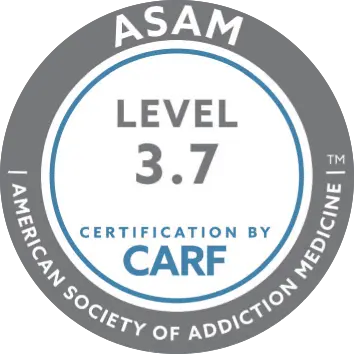Borderline Personality Disorder Treatment & Self-Test
Some people have trouble regulating their moods or experience wild mood swings. This can be a sign of immaturity, or it could be a symptom of borderline personality disorder. It's estimated that 1.6 percent of the general population in the United States struggle with borderline personality disorder (BPD).

If you or a loved one needs immediate help, contact us now
CALL (949) 281-0632The National Alliance on Mental Health reports that borderline personality disorder is primarily experienced by women, with women representing around 75 percent of cases. There are many cases where borderline personality disorder is misdiagnosed as depression or post-traumatic stress disorder (PTSD), making it more challenging to understand the scope of people with borderline personality disorder.
Borderline Personality Disorder Self-Test
What Is Borderline Personality Disorder?

This lack of control over their emotions can cause people with BPD to act out in a variety of ways. It also makes it difficult for them to maintain healthy relationships and puts them at risk due to risky behaviors. Some people are high-functioning outside of the home, but their personal lives are in turmoil.
Borderline personality disorder can have a co-occurring disorder. This might include substance abuse disorder, where the person might use drugs or alcohol to regulate their emotions. It can also include other mental health disorders like depression, anxiety, and more.
Signs and Symptoms of Borderline Personality Disorder
- Feelings of disassociation or out-of-body experiences
- Worries constantly and takes extreme actions to avoid abandonment by friends and family
- Low self-worth, including feelings of guilt or a focus on personal shortcomings.
- Extreme, uncontrollable anger
- Feelings of shame and regret after an emotional outburst
- Personal relationships that flip back and forth between love and hate
- Always bored or feeling empty inside
- Poor self-image
- Irritability and sadness
- Impulsive and risky behaviors, such as unprotected sex and spending money they don't have
- Self-harm
- Threats or attempts of suicide
Long-Term Effects of Borderline Personality Disorder
When a person has a borderline personality disorder, they need to seek treatment to minimize the symptoms. There are long-term effects of not treating and regulating borderline personality disorder.
Risky and impulsive behavior can cause an array of problems. It can cause the person to assume a level of debt that they can't repay. For example, unprotected sex can result in unwanted pregnancies or sexually transmitted diseases.
Without treatment, a person with borderline personality disorder won't be able to sustain healthy relationships with their family or romantic partners. They may find themselves unable to hold down a job or be unable to complete their education.
If the person struggles with a dual diagnosis, they might have additional long-term effects, especially if they have a substance abuse disorder. Left untreated, borderline personality disorder can cause the person to harm themselves or attempt suicide. Treatment is essential for someone who has borderline personality disorder.

Treatment Options for BPD
- Dialectical Behavior Therapy (DBT)
- Cognitive Behavioral Therapy (CBT)
Benefits of Treatment for BPD
Learn More About Borderline Personality Disorder Treatment at California Care Recovery

Recovery Starts Here!
At California Care Recovery, we are here to be a positive force for mental health. We’re open 24/7 and offer same day admissions. If you or a loved one is seeking effective treatment for issues of mental health, call us now.





